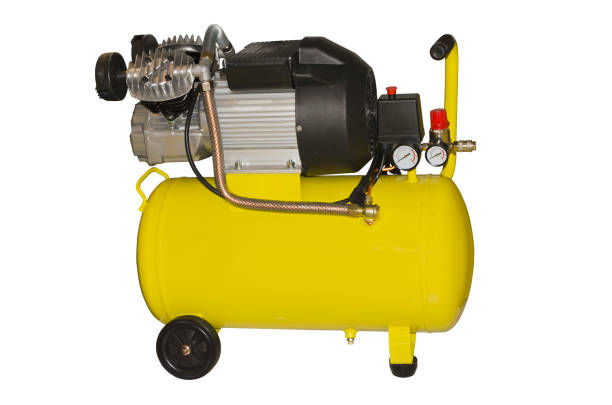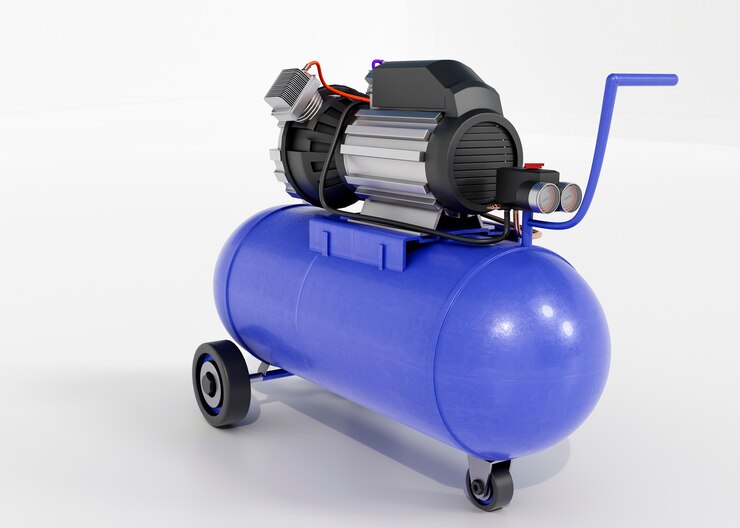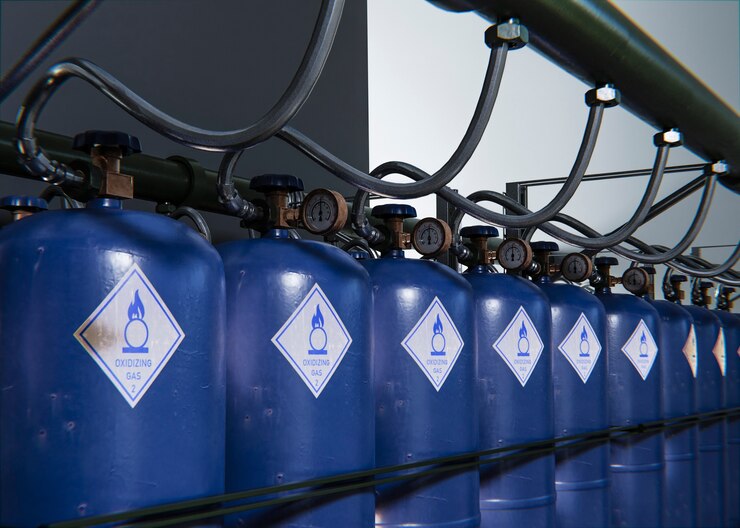Benefits of Syn Gas Compressors: Increased Efficiency & More
The Industrial Gas Powerhouse: An All-Inclusive Guide to Synthetic Gas Compressors
The workhorses of the industrial gas sector, syn gas compressor are essential for a wide range of applications, including the manufacture of chemicals and electricity. Their job is to raise the pressure of syngas, a fuel that may be used for a variety of purposes and is made from several feedstocks, including coal, biomass, and natural gas. This compressed syngas is then used as the fuel for a variety of industrial operations.
We’ll go deep into the topic of gas compressors in this extensive tutorial, covering their types, uses, advantages, and important factors to take into account while choosing and maintaining them. Whether you work in the sector or are just interested in learning more about this essential equipment, this post will give you insightful knowledge.
Comprehending Syngas: The Energy Source That Requires Compression
Syngas, sometimes referred to as synthetic gas, is a mixture of gases that includes different concentrations of methane, ethane, and other hydrocarbons along with hydrogen, carbon monoxide, and carbon dioxide as the main constituents. The feedstock utilized and the gasification process determines the precise composition of syngas.
Low pressure is the natural state of syngas. To make good use of it in different industrial applications, it must be compressed to a much higher pressure. Syngas compressors are useful in this situation.
Syngas Compressors’ Crucial Function: Increasing Pressure for a Range of Applications
The heroes of the industrial gas industry are syn gas compressor. These robust devices are essential for many applications because they raise the pressure of syngas, a flexible fuel that comes from a variety of sources including coal, biomass, and natural gas. Syn gas compressors are crucial pieces of equipment in a variety of sectors since the compressed syngas powers several processes.

- Increasing Force and Output:
Gas compressors are the engines of integrated gasification combined cycle (IGCC) power plants. They generate energy. To maximise power output, they compress syngas for use as fuel in gas turbines. Similar to this, compressed syngas is an indispensable feedstock in the chemical industry, used to produce vital compounds like methanol, ammonia, and even synthetic fuels.
- Refinery Titan and Biogas Laureate:
Compressors for synthetic gas are also essential in refineries. Here, compressed syngas help with the operations of fluid catalytic cracking (FCC), hydrocracking (which turns heavy oils into lighter products), and hydrogen production. Syngas compressors enable the utilization of biogas from wastewater treatment facilities or landfills in addition to fossil fuels. They make it possible for this renewable fuel to be transported efficiently through pipes or used to generate electricity by compressing it.
- Selecting the Appropriate Compressor for the Task:
Depending on your needs, you can choose the best syn gas compressor. Reciprocating compressors are a common option because of their reputation for dependability and capacity to handle “dirty” syngas streams. Centrifugal compressors are a wonderful choice if you want continuous, high-efficiency operation. Screw compressors are a balanced solution that manages wet syngas effectively and dependably.
Synthetic Gas Compressor Types: Selecting the Best Model for Your Requirements
These gas compressors are available in several models, each of which is best suited for a particular need. It is essential to comprehend these kinds to choose the one that best suits your corporate requirements. The three leading candidates are broken out as follows:
- Reciprocating Champions:
These workhorses compress syngas using pistons. They are highly dependable and capable of managing “dirty” syngas streams that include impurities or moisture. They also provide an extensive range of pressure outputs that can be achieved. When compared to other solutions, they can need more frequent maintenance, nevertheless.
- Centrifugal Speed Demons:
To raise syngas pressure, these dynamic compressors use impellers spinning at a high speed. Their exceptional productivity and capacity for continuous operation make them stand out. Furthermore, their small size conserves important rooms. They might not be the best choice, nevertheless, for applications demanding very high pressure or for managing especially moist or filthy syngas streams.
- Screw Compressors:
An Equitable Methodology Intermeshing screws are used by these compressors to accomplish compression. They provide a balance between wet syngas handling capability, efficiency, and dependability. They are therefore a flexible option for a wide range of uses.
Choosing a Compressor Based on Your Needs:
Selecting the ideal this compressor involves more than simply kind. Here are important things to think about:
- Demands for Flow Rate and Pressure:
Verify that the compressor can produce the necessary amount and pressure of syngas.
- Syngas Composition:
Take into account any impurities, moisture, or other elements in the syngas that could affect the choice of compressor.
- Efficiency against upkeep:
Strike a balance between the required maintenance for various compressor types and your desired efficiency.
- Space Restrictions:
Choose a compressor that fits the area you have available by taking into account the footprint of each model.
You may make an educated choice by carefully weighing these aspects in addition to the advantages of each type of compressor. Our extensive resource on syn gas compressor selection includes detailed discussions on maintenance and safety factors. You can find important information there to make sure you get the syn gas compressor that best suits your industrial operations.
Syngas Compressors: An Industry Powerhouse with Several Advantages
For good reason, syngas compressors are the workhorses of the industrial gas world. The entire potential of syngas, a flexible fuel made from a variety of sources including coal, biomass, and natural gas, is unlocked by these potent machines. They provide numerous benefits to a variety of businesses by compressing syngas, including:
- Enhanced Efficiency:
The secret to optimizing fuel utilization is the use of syn gas compressor. In IGCC plants, compressed syngas burns more effectively during power generation, increasing the power output from gas turbines. Comparably, compressed syngas turns into a high-performance feedstock in the chemical industry, streamlining the manufacturing of necessary chemicals.
- Enhanced Transportation:
The low pressure of syngas is a significant obstacle to transportation. This issue is resolved with these compressors. They allow syngas to be transported through pipes economically and efficiently by dramatically raising pressure. This makes it possible to use this important fuel source more widely.
- Application Versatility:
Syn gas compressor versatility is what makes them so beautiful. They serve many industries than only those that produce chemicals and power. Refineries use compressed syngas for hydrocracking, FCC, and hydrogen generation. They also have a significant impact on the use of renewable biogas produced by wastewater treatment facilities or landfills. Syn gas compressors help create a more sustainable future by facilitating the effective transportation and utilization of biogas for power generation.
- Flexibility with Varying Feedstocks:
These compressors don’t have a discriminating palate! They are capable of processing syngas from a variety of sources, including biomass, coal, and natural gas. Industries benefit from increased resource security and the capacity to adjust to shifting market conditions because of this fuel source flexibility.
- Unlocking the Potential of Syngas:
These compressors enable this adaptable fuel to reach its maximum potential by removing the constraints of low-pressure syngas. They make it possible for more extensive application in a variety of industries, economical transportation, and effective utilization. Using renewable biogas, not only streamlines industrial operations but also clears the path for a more sustainable future.
Factors to Take into Account When Choosing Your Industrial Workhorse: Synthetic Gas Compressor
Syn gas compressor is the foundation of many industrial operations, but choosing the appropriate one needs considerable thought. Here’s a summary of the important variables to make sure you select the ideal match for your requirements:
- Requirements for Capacity:
This is crucial. Your intended syngas flow rate, or volume per unit of time, and pressure output must be supported by the compressor. Your activity may be hampered by bottlenecks caused by insufficient capacity.
- Syngas Composition:
Variations exist among syngas. Compressor selection may be impacted by impurities like moisture, dust, or particles. Centrifugal compressors may need cleaner streams for best performance; however, reciprocating compressors are great at handling “dirty” syngas.
- Enhanced Transportation:
The low pressure of syngas is a significant obstacle to transportation. This issue is resolved with syngas compressors. They allow syngas to be transported through pipes economically and efficiently by dramatically raising pressure. This makes it possible to use this important fuel source more widely.
- Application Versatility:
These compressor’s versatility is what makes them so beautiful. They serve many industries than only those that produce chemicals and power. Refineries use compressed syngas for hydrocracking, FCC, and hydrogen generation. They also have a significant impact on the use of renewable biogas produced by wastewater treatment facilities or landfills. They help create a more sustainable future by facilitating the effective transportation and utilization of biogas for power generation.
Conclusion:
These are the dependable and effective workhorses your sector requires. LIEYAO Compressor ensures excellent performance for syngas processes by offering a range of compressor types to suit your particular application. They enable syngas to reach their full potential in a variety of industrial uses, improved transportation, and increased power generation. Get in touch with us right now to talk about your requirements and find out how we can enhance your industrial processes.



